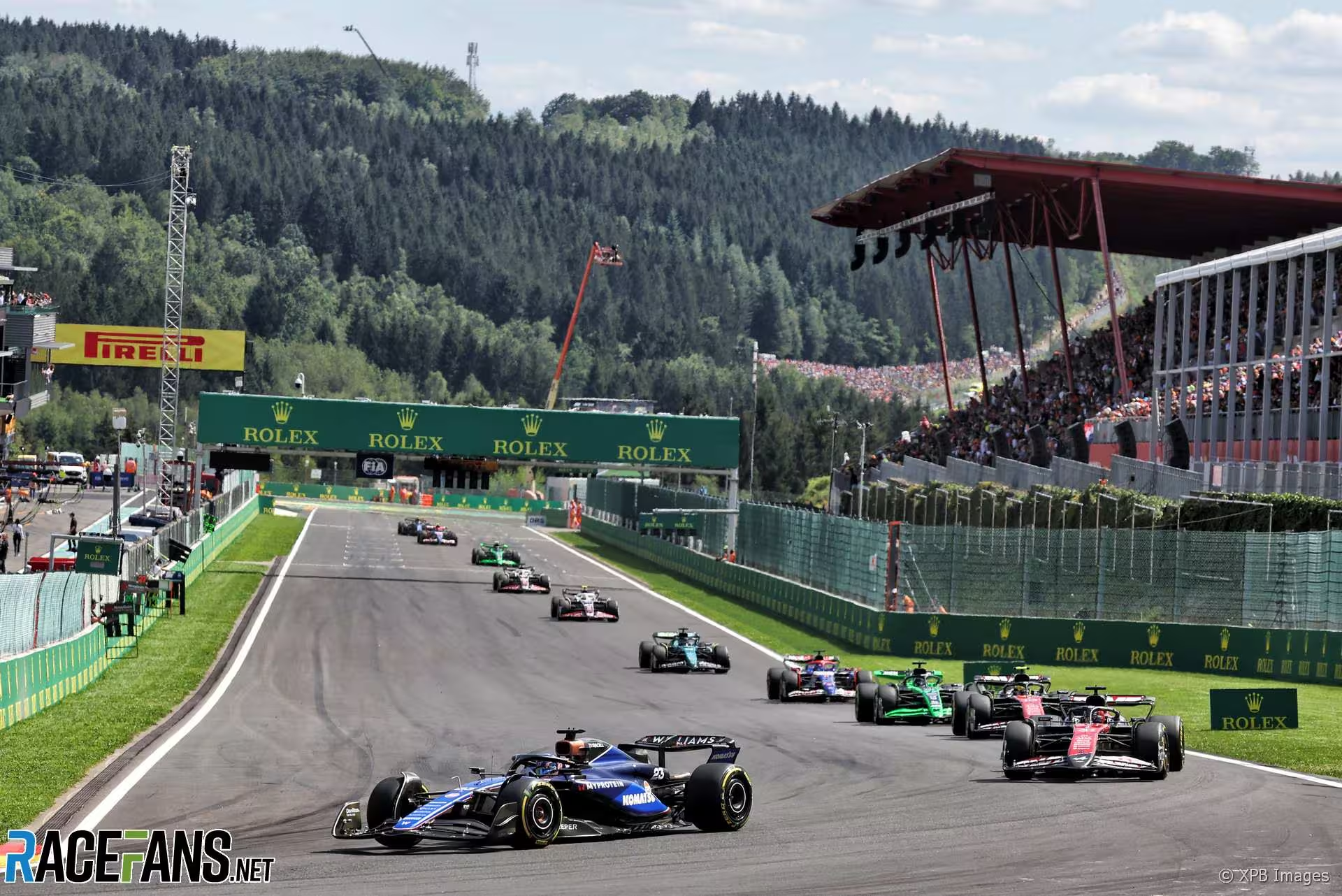Williams team principal James Vowles does not believe that overtaking in Formula 1 is inherently harder in 2024 than previous seasons.
Despite Formula 1 revolutionising its technical regulations for the start of the 2022 season to reintroduce ground effect downforce generation to make following behind other cars easier, drivers have reported that overtaking has become more difficult over the last two years.
After the last grand prix before the summer break at Spa-Francorchamps, initial race winner George Russell described overtaking as “so difficult” after he held off Mercedes team mate Lewis Hamilton, a view shared by McLaren’s Lando Norris, who finished fifth after spending several laps unable to pass Max Verstappen.
“I actually felt pretty comfortable out there and in good shape – it’s just overtaking was impossible, so I was a bit stuck,” Norris said.
After Alexander Albon was unable to find a way by Lance Stroll despite the spending the final seven laps of the race within DRS range of the Aston Martin, Vowles says his driver was far from alone in struggling to overtake at Spa.
“Overtaking at Spa looks easy in principle. There’s very long straights, especially when you look at turn one exit, going up through Eau Rouge and then that long run down to turn five [Les Combes] – and yet, we didn’t see a lot,” Vowles explained in a video on Williams’ website.
“You needed quite a big tyre delta in order to make that work, and even then it wasn’t enough. Look at the front: the two Mercedes runners – there wasn’t an overtake taking place there [between Russell and Lewis Hamilton], despite the two different strategies.”
Vowles believes that the challenges drivers are facing in following and passing rival cars reflects the closer performance level between cars in the field, rather than an increased problem of dirty air.
“I think what you’re more seeing now is a field that is much, much closer than before,” he explained. “A field where there isn’t tenths between cars, but rather milliseconds. And when that happens, overtaking is just a lot more tricky. You need a lot more tyre delta in order to make it happen.
“So is it harder this year than any other year? I don’t think so. Are the teams close together? Yes. And I think that’s fundamentally it.”
Advert | Become a RaceFans supporter and
Formula 1
Click Here to Read the Full Original Article at RaceFans…

